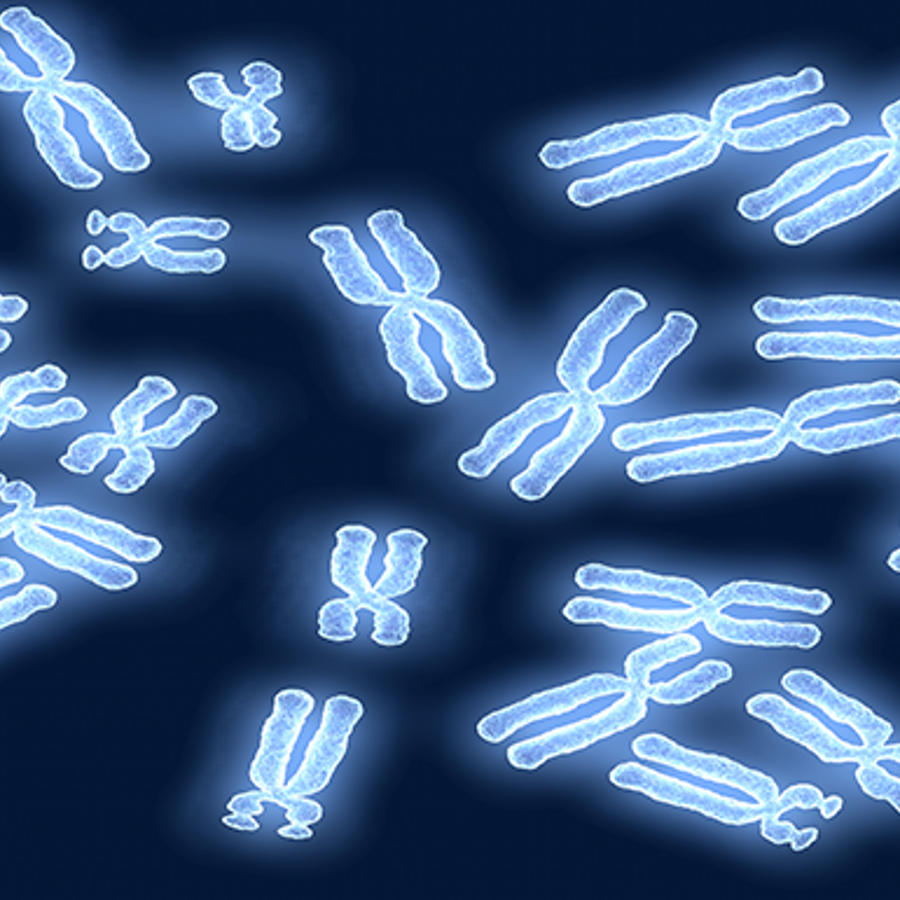
What happens if someone doesn’t have 46 chromosomes?
June 3, 2004

- Related Topics:
- Chromosomes,
- Trisomy/Aneuploidy,
- Genetic conditions
A high school student from Pakistan asks:
“What will be the effect on our body if chromosome number is altered from 46?”
If a body has too few or too many chromosomes, it usually won't survive to birth. Getting the number of chromosomes right is so complicated that nature often makes mistakes. Believe it or not, around 10% of sperm and 50% of eggs contain abnormal chromosomes and more than half of first trimester spontaneous abortions are due to chromosome abnormalities.1
Given these stark numbers, are there any cases where a person can survive with the wrong number of chromosomes? Yes, but there are usually associated health problems.
The only case where a missing chromosome is tolerated is when an X or a Y chromosome is missing. This condition, called Turner syndrome or XO, affects about 1 out of every 2,500 females.2 XO is one of the most common chromosomal abnormalities.
About 1 in 500 male births have an extra X chromosome (XXY) or an extra Y chromosome (XYY). Extra copies of chromosomes 13, 18, and 21 are all tolerated to some degree. An extra chromosome 13 or 18 usually results in severe and debilitating symptoms. Having an extra chromosome 21 results in Down syndrome. About 1/600 live births are affected by Down syndrome.

Besides having a whole extra or missing chromosome, there are many instances of having a missing or extra bit of chromosome. Often this happens by a piece of a chromosome being moved to another chromosome (called translocation). The severity of symptoms is usually dependent on how much of the chromosome is missing or duplicated.
As you can see, there are numerous instances of fetuses having more or less than the usual 46 chromosomes. Most are miscarried but a small percentage makes it to term. The table below lists the conditions described above along with some of the associated symptoms:
|
Chromosome alteration |
Disorder |
Symptoms/ Life expectancy |
|
-X or -Y |
Turner Syndrome (XO) |
Short stature; infertility and ovarian failure are common; hormone therapy often required |
|
+X |
Klinefelter Syndrome (XXY) |
Sterile; testosterone therapy often required. |
|
+Y |
XYY |
Impulse control problems, above average height. |
|
+21 |
Down Syndrome |
Intellectual disability, short stature, increased risk of certain medical conditions, shortened life expectancy. |
|
+18 |
Edward's syndrome, Trisomy 18 |
Average length of survival is approximately 14 days. 91% die by age one.3 |
|
+13 |
Patau's Syndrome, Trisomy 13 |
Average length of survival is approximately 7 days. 91% die by age one.3 |

Author: Dr. Barry Starr
Barry served as The Tech Geneticist from 2002-2018. He founded Ask-a-Geneticist, answered thousands of questions submitted by people from all around the world, and oversaw and edited all articles published during his tenure. AAG is part of the Stanford at The Tech program, which brings Stanford scientists to The Tech to answer questions for this site, as well as to run science activities with visitors at The Tech Interactive in downtown San Jose.
 Skip Navigation
Skip Navigation
